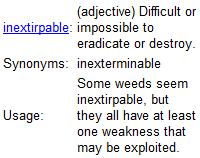Roald Dahl was born in Wales in 1916 of Norwegian parents. He served as a fighter in World War II and his first volume of short stories, Over to You, was based on his wartime experiences. Other collections are Kiss Kiss, Someone Like You, Switch Bitch and Further Tales of the Unexpected. They have been translated into many languages and are bestsellers all over the world. His stories, bizarre and alarming, often with a touch of black humour, are more in the fantasy and horror genres though he sometimes make use of science-fiction images. His stories for children, such as Charlie and the Chocolate Factory, are also enormously popular. He died in 1990.
First lines:
It was a warm summer evening and Klausner walked quickly through the front gate and around the side of the house and into the garden at the back. He went on down the garden until he came to a wooden shed and he unlocked the door, went inside and closed the door behind him.
Last lines:
“Thank you, doctor,” Klausner said and he nodded his head again and he dropped the axe and all at once he smiled a wild, excited smile and quickly the doctor went over to him and gently he took him by the arm and he said, “Come on, we must go now,” and suddenly they were walking away, the two of them, walking silently, rather hurriedly across the park, over the road, back to the house.
Most interesting lines:
“This machine is designed to pick up sound vibrations that are too high-pitched for reception by the human ear and to convert them to a scale of audible tones.”
Most Dahl line:
It felt something else which we didn’t know about – something called toin or spurl or plinuckment, or anything you like.
Most ominous lines:
He put the earphones on his head and switched on the machine. He listened for a moment to the faint familiar humming sound; then he picked up the axe, took a stance with his legs wider apart and swung the axe as hard as he could at the base of the trr trunk. The blade cut deep into the wood and stuck there and at the instant of impace he heard a most extraordinary noise in the earphones. It was a new noise, unlike any he had heard before – a harsh, noteless, enormous noise, a growling, low-pitched, screaming sound, drawn out like a sob lasting for fully a minute, loudest at the moment when the axe struck, fading gradually fainter and fainter until it was gone.
Layman’s plot: Old Man is absorbed in his scientific experiment when friend Doctor walks in. Doctor discovers Old Man is making a machine that is able to detect sounds beyond the human ears can. Machine works – Old Man hears sounds from inanimate objects. He excitedly reveals his discovery to Doctor. Will Old Man be able to convince Doctor? Or is he just another crazed mad scientist?
Verdict: It’s a typical Dahl science fiction. This is my least favourite Dahl story, perhaps because this was part of the Literature Component for my SPM (Malaysian equivalent of O-Levels). I never like the texts learnt for literature more than texts I discover myself through my own choice. That’s not to say I hate all the texts I’ve learnt for literature classes.



Bookworms Speak Up